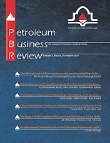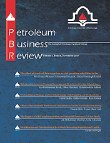فهرست مطالب

Journal of Petroleum Business Review
Volume:7 Issue: 3, Summer 2023
- تاریخ انتشار: 1402/06/11
- تعداد عناوین: 6
-
-
A Technological Learning Model in Joint R&D Projects in Petroleum IndustriesPage 1
Technological learning and the drive to self-sufficiency in different industries emphasize the role of companies in the knowledge acquisition from external sources. Iran's petroleum industry is also a suitable case to study in this area, given the large firms on the one hand and the long-term historical partnerships with foreign companies on the other. Some of the industry's achievements, such as sustainability under sanctions, the country's largest source of export and some recent breakthroughs, particularly in the registration of international patents and localization of various technologies, show the success of learning efforts. This study, which examines the learning processes to joint R&D (JRD) projects in the petroleum industry, analyzes the path of technological learning in this industry using a mixed method approach and multi case study method. For this purpose, four successful JRD projects in technological learning in upstream and downstream are selected and 16 interviews are conducted with project managers and experts of selected projects and using the JRD's life cycle to present a technological learning model in JRDs. The results of theme analysis of interviews show that the most important and effective component of the model is "effective factors". The most affected component is "types of learning". Also, the most effective factors and the most effective learning mechanism are "absorption capability", "cultural homogeneity" and "learning by interacting" Respectively.
Keywords: Explorative Learning, Exploitative learning, learning mechanism, JRDs life cycle -
Designing and Explaining a Socially Responsible Marketing ModelPage 2
Unlike other organizations, employees of the oil company retire at the age of 60, and their retirement is not based on 30 years of service. Therefore, they require more attention during their retirement. Accordingly, the aim of this research is to design and explain a socially responsible marketing model with an emphasis on the retired community in Gachsaran Oil and Gas Exploitation Company. The research method was mixed-exploratory, based on foundational data theory in the qualitative phase, using purposive sampling, and in the quantitative phase, using descriptive and inferential statistics and structural equations analysis. The results show that Gachsaran Oil and Gas Exploitation Company has a process that cannot be performed separately from society. Therefore, having socially responsible marketing in the company can help retirees with public services and provide a way to strengthen the motivation of employees and support the interests of the community during retirement. Thus, these organizations need managers who can determine the future path of the organization with depth, guide individuals to the determined path, and create motivation for transformation based on social marketing in employees of organizations
Keywords: Social Marketing, social responsibility, Gachsaran Oil, Gas Exploitation Company -
Application of Panel Data Seemingly Unrelated Regression in Consumption of Hydrocarbon Energy CarriersPage 3
In this study, consumption datas of hydrocarbon energy carriers in Iran during the years 1982-2017 were collected. A seemingly unrelated regression (SUR) model in balanced panel data approach was proposed It can be beneficial to control energy demand. Results revealed that in the residential-commercial sector indicate that the consumption of hydrocarbon energy carriers with lag has a positive effect and the weighted average price of petroleum energy carriers includes a negative impact on the consumption of hydrocarbon energy carriers. In the industry sector, consumption of hydrocarbon energy carriers with lag includes a positive impact on the usage of hydrocarbon energy carriers, and the weighted average price of petroleum energy carriers has a negative effect on the consumption of hydrocarbon energy carriers. In the agriculture sector, the variables of energy intensity, value added of the agriculture sector, population and consumption of hydrocarbon energy carriers with lag have a positive impact on the usage of hydrocarbon energy carriers in this sector. In the transportation sector, gross domestic product, extremity of energy usage in the transportation part and consumption of hydrocarbon energy carriers with lag include a positive impact on the usage of hydrocarbon energy carriers in this sector and has a negative impact on the consumption of hydrocarbon
Keywords: Seemingly Unrelated Regression, panel data, hydrocarbon energy carriers Consumption, Iran -
A review of Kuwait's petroleum technical assistance contract in terms of establishing requirements for technology transfer: recommendations for Iran's oil sectorPage 4
Considering the long-term nature of oil and gas contracts, managing the relationship between the parties to the contract is fundamentally important. In upstream oil contracts, according to the level of supervision and control of the host state over the petroleum project, the level of communication is variable. In risk service contracts due to extensive supervision, there should be a lot of interaction and cooperation between the parties. This study examines Kuwait's model of technical assistance services contracts. It concludes that, due to its improved cooperative structure, this format of service contracts is more compatible with current conditions in Iran's oil fields, such as southern Pars. These fields are operated by Iranian oil companies, but need more technology to function properly. In this article, it is discussed how Technical Assistance Contracts (TACs) can generate an efficient solution for the issue at hand. The methodology is based on describing and analyzing Kuwait’s TAC.
Keywords: Upstream Petroleum Contracts, technical assistance contract, services contracts, Coordination, Technology Transfer -
Presenting and explaining the job rotation implementation model based on the organization, methods and value chain of National Iranian Gas CompanyPage 5
The purpose of job rotation policies is to create a talent pool for the organization along with mutual training of employees. Ensuring that a planned job transfer is beneficial to both the employee and the organization requires consideration of the organization and the company's value chain. The current research has been conducted with the aim of designing a job rotation implementation model based on the organization, methods, and value chain of Iran's National Gas Company. The qualitative research method is based on foundational data theorizing. Semi-structured interviews were used to collect information, and data analysis was done using the Strauss and Corbin method and the paradigm model. Sampling was done theoretically and with the benefit of targeted (judgmental) and snowball (chain) techniques, based on which 18 interviews were conducted with knowledgeable professors and experts in the field of human resource management and public administration. The results of the data analysis obtained from the interviews during the process of open, axial, and selective coding led to the creation of a job rotation implementation model based on the foundation's data theory including 6 main dimensions, 64 sub-dimensions, and 186 characteristics.
Keywords: Job Rotation, Value chain, National Iranian Gas Company, Grounded theory -
Identifying and Prioritizing Risks Related with Time Delays in Oil and Gas ProjectsPage 6
Delay is an event that increases the completion time of a part of the project, which is one of the main problems in the executive projects of the country and causes an increase in project costs as well as damages. Project delays pose significant risks to the project that are dangerous for the project to continue. These risks are of particular importance in oil and gas projects. The purpose of this study is to identify and rank the risks related with delays in oil and gas projects. The present study is applied in terms of orientation and quantitative in terms of methodology. The statistical population of the study is managers and experts of risk and delay in oil and gas projects in the country. Among these people,15 people were selected as the sample by judgmental sampling method. For data collection, two questionnaires of expertise and prioritization were used, both of which had validity and reliability. In the first step, the risks associated with project delays were extracted by reviewing project risk and delay articles. In the next step, these risks were screened using the Binominal test.11 risks had a significance coefficient higher than 5% and were excluded from the calculations. The remaining 8 risks were prioritized using the Codas distance technique. According to the data of the relative evaluation matrix and the scores of each risk, the risks of sanctions, inflation, and lawsuits and complaints had the highest priority, respectively. Finally, research proposals were developed based on significant risks.
Keywords: risk, Project Risk, project delay, Delay-related risk


